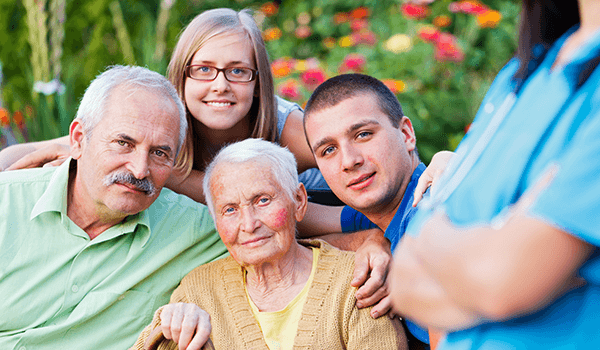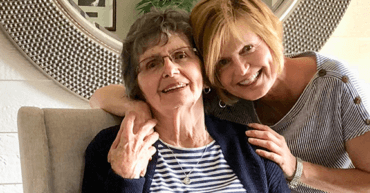February 10, 2023
All in the Family: Expanding Your Care Team

By Julie Luby, ReCODE 2.0 Certified Coach for Apollo Health
My 87-year-old dad was in the later stages of Alzheimer’s Disease and vascular dementia when our family learned about the Bredesen Protocol. My 83-year-old mom was his care partner. After learning about the Bredesen 7 strategies, I knew that even my “energetic for her age” mom would need help, and I decided to become part of his care team too. The challenge was that I lived and worked 150 miles away. While I couldn’t be there every day, I figured out what I could help with — driving him to see his out-of-state ReCODE doctor, setting up and joining phone calls with his coach and nutritionist, taking notes at all of these sessions, searching for a personal trainer and music therapist, helping to organize his supplements, and designing a daily checklist. I also started the recommended keto diet myself, so I could share recipes with my mom and better understand what they were going through. My mom expressed many times how grateful she was to have the help.
Now, as a health coach, I see over and over how powerful it can be to have extended family members involved on the care team for ReCODE participants. I coach many care partners, usually spouses, who are joined on our Zoom calls by adult children or grandchildren. Sometimes they live nearby, but often they live in other states (or countries). Each family is different, but I see the power and support in experiencing the protocol together. At the end of the coaching session, everyone on the call may have goals to work on to support the ReCODE member’s compliance with the B7 strategies.
If you are a ReCODE member or care partner, have you considered asking other family members to become part of your care team? If not, you might be surprised at the impact it can make.
What are the benefits of having other family members join your care team? They may feel grateful that they can do something to help, especially when living far away. They may want to reduce the stress load on their parents. They can be an extra set of eyes and ears at your doctor’s appointment or coaching session — capturing notes to be reviewed with you later. They may have technology skills that they can share, which can also be a great help.
Occasionally, you may find that not all your family members are enthusiastic about helping. Why might the family not want to get involved? Some may be too busy or stressed with their own lives. They may fear the idea of cognitive loss or think that this could happen to them one day. (They may not realize that it can be prevented or reversed!) Meet them where they are. Let them help where they can and will. If you sense some interest amidst the hesitancy, ask if they would like to know more about the protocol. Share your why — why is it important to you to be on this journey? Share your enthusiasm. Buy them Dr. Bredesen’s book. Invite them to sit in on a coaching session.
And remember that while some family members are biological, others are “chosen.” Don’t forget to include close friends on your care team — they may be closer to you than your family. In the beginning stages, it is very tempting to try to keep your loved one’s condition a secret. This can be very isolating for you and deprive your loved one of important social interactions. I often explore with coaching clients what they think might happen if they share their situation with a few close friends. In almost every case, they find that deciding to confide in close friends goes extremely well, and they are so relieved to have someone with whom they can talk. Many times, they find out that they have other friends in similar situations, and this can build strong bonds too.
How often have you heard family or friends say, “Let me know if there is anything I can do.” If you are tempted to brush it off, reconsider! People truly want to help. Think of ways they can lighten your load. Could they take your loved one for a walk, to an exercise class, or get their hair styled, so you have some time for yourself? Could they just come over and spend time with you and your loved one so that you have more social interactions? Could they bring grandchildren over to spend time with your loved ones? Could they order your supplements or set up your ketone-measuring device? Or help you find great-tasting recipes, organic and clean food sources, or even a personal chef service?
Although I eventually lost my dad, I don’t regret a single moment I spent helping my parents implement the protocol. I cherish all the time I spent with them and felt a closer bond with my mom as a result. Expanding your care team to include family members (or close friends) may be providing them with a gift they will cherish forever. And don’t forget to express your gratitude to those on your care team. It will make you all feel good.




